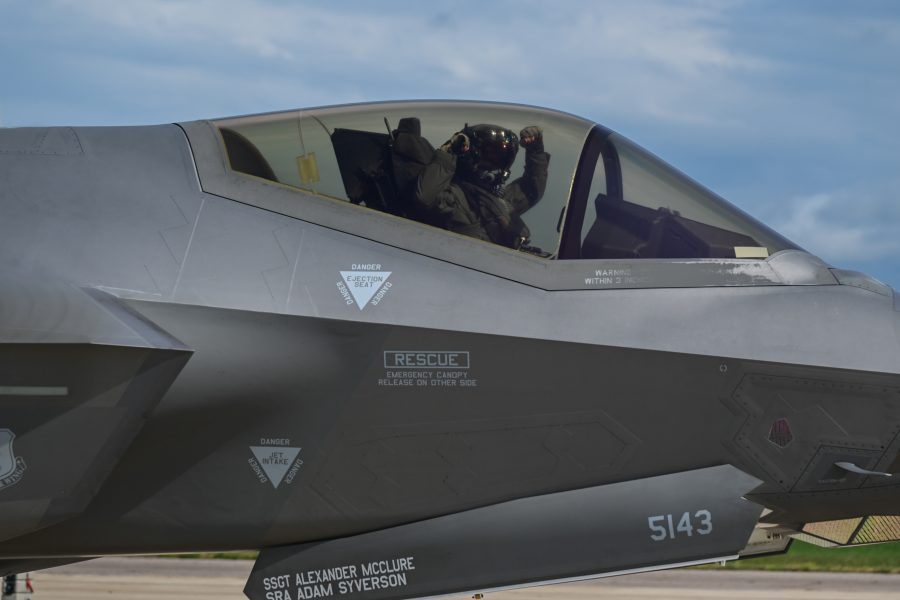The Air Force is instituting a new bonus program to entice its pilots to stay in the service by encouraging them to re-up years in advance.
The Rated Officer Retention Demonstration program, formally unveiled Aug. 15, will offer bonuses of up to $50,000 per year to Airmen whose Active-Duty service commitments from training are due to expire in fiscal 2024 and 2025.
Rated officers—specifically pilots, an Air Force spokeswoman confirmed—have until Sept. 15 to apply for the bonus program. The amount of the bonus will depend on the length of the contract the Airman signs.
Starting next year, the service will reserve the biggest bonuses for pilots who sign contracts while still having three years left on their initial commitment.
The new program will run in parallel to the Air Force’s existing “legacy” Aviation Bonus Program, which is available to pilots, air battle managers, and combat systems officers and also offers up to $50,000 annually. However, pilots will not be able to combine the two bonuses, a spokeswoman said.
The Rated Officer Retention Demonstration program was implemented in the 2023 National Defense Authorization Act, which gave the Secretary of the Air Force leeway to offer the bonus to rated officers “whose continued service on active duty would be in the best interest of the Department of the Air Force” and who have between 1-3 years left on their initial service commitment.
The law also notes that any contract should add at least four more years to a program participant’s service commitment.
Finally, the law allows the Secretary of the Air Force to offer a combination of bonuses and base of preference selections as part of the program. The Air Force, however, did not mention any base of preference selection as part of this year’s program.
The program is authorized to run through 2028. If this initial year is deemed a success, the Air Force “may potentially continue with higher funding allocation requests in future years to expand offerings to a broader rated field and/or for an extended period,” according to a release.
Air Force leaders and members of Congress hope that providing pilots the chance to renew their commitment years in advance will address a common complaint among aviators—a lack of stability for their families.
In the past, Vice Chief of Staff Gen. David W. Allvin noted before Congress in May, bonuses have come too late to change plans that were already years in the making.
“Now, obviously, we’re asking for a longer commitment, but at that time, it’s helping them cement their future, see where their families are and have that predictability,” Allvin said.
Whether the earlier bonuses will make mid-career pilot retention easier is not yet clear. “We just started this,” Allvin said. But the service is optimistic that offering more stability will improve retention.
Improving retention will be a key part in addressing the service’s persistent pilot shortage. In written testimony, Allvin noted that the Air Force had a net loss of about 250 pilots in fiscal 2022 and ended the year 1,900 pilots short of its goal of 21,000. For years now, the Air Force has struggled to produce and retain enough pilots to meet its goals, facing stiff competition from private industry.
Other steps the service is taking include a revamp of how it identifies and trains new pilots. Changes to the pilot candidate scoring mechanism have reduced emphasis on prior flying experience to encourage more diverse applicants. A new curriculum, Undergraduate Pilot Training 2.5, aims to make greater use of simulators and personalized training to help candidates better prepare for actual flying.
Finally, Air Force Chief of Staff Gen. Charles Q. Brown Jr. said in June that leaders are reconsidering whether some higher-ranking staff jobs need to be filled by pilots. The USAF has been absorbing the pilot shortage by undermanning those jobs.

